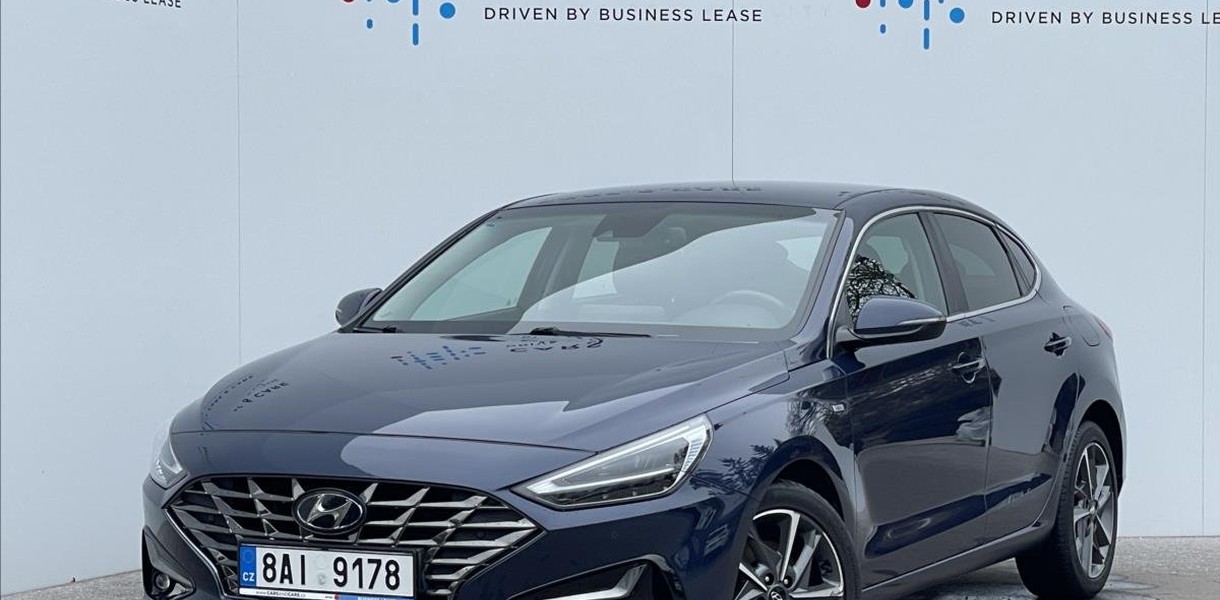If you are looking for a used car that will offer you reliability, decent dynamics and, above all, comfort, the third generation Hyundai i30 is one of the models that deserves your attention. Although today the market is mainly focused on SUVs and crossovers, the i30 is an ideal choice for those who prefer classic hatchbacks or station wagons with an honest atmospheric four-cylinder. This model boasts not only a reasonable price tag, but also solid driving characteristics and a pleasant interior.
The Hyundai i30 of the third generation is available in several body versions - hatchback and station wagon. You can therefore choose between a more compact city model or a practical station wagon that offers a larger luggage space. In terms of style, the Hyundai i30 does not impress with its extravagant design, but it offers simple and functional lines that are suitable for everyday use. Although the Fastback is a more stylish option, it is not available with the naturally aspirated four-cylinder, which is an attraction for many due to its reliability.
Under the hood, you can meet various power units, but the atmospheric four-cylinder with a volume of 1.5 liters (CVVT) is worth mentioning. This engine is popular mainly due to its simple design, which does not contain a turbocharger or direct fuel injection. This means you don't have to worry about common problems like carbonation or oil dilution with gasoline that are typical of modern turbocharged engines.
The 110-horsepower engine looks good on paper, but you have to reckon with the fact that its power will only show at higher revs. If you want to get the most out of this engine, you'll need to keep it around six thousand revs, which for some may mean more frequent shifting and more intensive work with the gearbox. Nevertheless, the engine is smooth and refined, which you will appreciate during normal driving in city traffic or on shorter routes.
On the other hand, if you're used to turbocharged engines with higher torque already at low revs, the naturally aspirated four-cylinder may disappoint you a bit with its need for more frequent downshifts. And especially when fully loaded, when the car feels lazier and requires more effort when overtaking or brisk driving on the highway.
In terms of driving characteristics, the third-generation Hyundai i30 offers a very pleasant experience behind the wheel. The chassis is well-tuned for everyday use and manages to absorb road bumps comfortably. On smooth asphalt, the car behaves stably and confidently, which makes it a reliable companion for longer journeys. While the steering may not pull you in as much as sportier models, the Hyundai i30 is very easy and effortless to drive.
The slightly slower steering gear will be appreciated by calmer drivers, while more sporty enthusiasts may feel that the car's reactions are not as quick as they would like. Although the trailed rear axle is not a technical highlight, it is practically unrecognizable on the road during normal use. The car sticks to its track and shows no signs of uncertainty even on worse roads.
The interior of the Hyundai i30 is practical and uncluttered, which is exactly what most drivers in this class expect. The controls are easily accessible and well spaced, making them easy to use while driving. In terms of equipment, the Hyundai i30 with the 1.5i engine does not offer the option of an automatic transmission, which may be a disadvantage for some drivers if they prefer automatic transmissions.
Plus, if you can put up with top trim levels and premium features like keyless entry, panoramic windows or adaptive cruise control, you'll be disappointed as this engine is only available on lower trims. However, for most drivers, even the basic equipment will be completely sufficient, as it offers all the important elements that are standard today, such as air conditioning, cruise control, rear parking sensors or LED daytime running lights.
One of the main advantages of the naturally aspirated four-cylinder is its consumption. With reasonable driving, you can move around 5.5 liters per 100 km, which is a very solid result by today's standards. In addition, thanks to its simple design, the engine promises a long service life and less frequent service visits, which you will especially appreciate in long-term operation. For undemanding drivers who prefer simplicity and reliability over complex modern technologies, this engine is an ideal choice.
The third-generation Hyundai i30 with a 1.5i CVVT engine is the ideal car for those looking for a reliable, practical and economical hatchback or station wagon. Although it does not offer the same dynamics as turbocharged engines, its simplicity and reliability make it an excellent choice for everyday driving. If you are looking for a car that will not bother you with expensive repairs and complex technology, the Hyundai i30 will not disappoint you.
